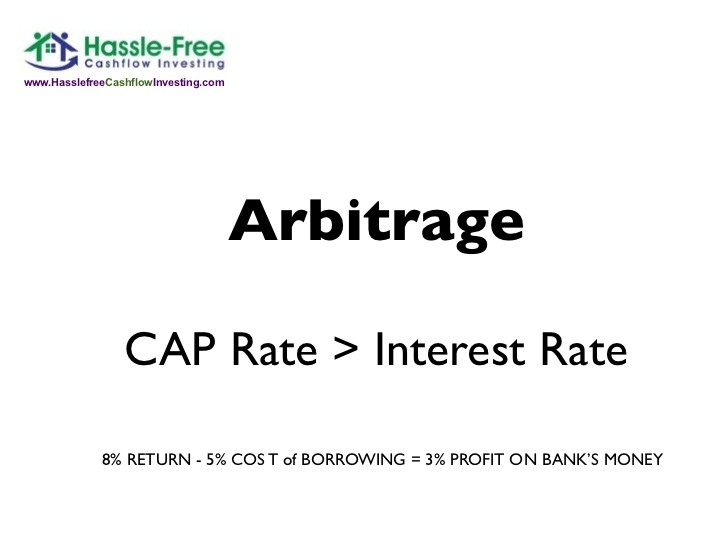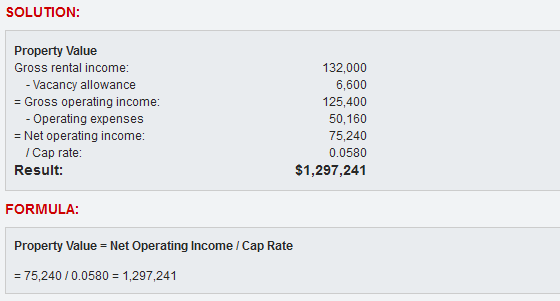How To Properly Use Capitalization Rates In Real Estate Investing
Post on: 30 Май, 2015 No Comment

How To Properly Use Capitalization Rates In Real Estate Investing
If you have looked at commercial or large scale residential real estate as an investment, you probably have been schooled in using a capitalization rate (cap rate) analysis for the preliminary selection of property.
If you havent, then you might be curious about what the big dogs are doing, and you might want to know how to use this magical formula for yourself one day. Just last week, I wrote about an apartment for sale in Tallahassee. and I referred to cap rate many times without giving much explanation of the concept.
Well, if you fasten your seat belt, Im going to show you why the sophisticated investors are getting burned, and how you can use a real estate cap rate analysis as it was intended.
Capitalization Rate Defined
Most people are a bit confused on cap rate analysis in real estate and how it is derived.
The CAP RATE is merely an equation that takes the expected annual income and divides it by the property value (or asking price). So a property that has an asking price of $1M and throws off a $100K per year income has a cap rate of 10%.
The lower the capitalization rate, the better the deal for the seller. The higher the capitalization rate, the better the deal for the buyer.
Or so many novice investors believe
Calculating this rate is a good way to quickly compare many investment opportunities, but you should never consider it anything more than a rule of thumb in your real estate investment decision.
There are numerous other factors which need to be looked at, such as current property condition, the future growth or decline of the potential income, and the real potential for changes in value of the property.
For Example
If you are comparing Property A to Property B, and both are on the market for $2M, a cap rate analysis would tell you to buy the one with the greater cash flow. So if Property A was producing $200K per year, it would have a cap rate of 10%. If Property B was cash flowing at $100K per year, it would have a 5% cap rate. But isnt there more to value than just current cash flows?
What if Property A was in perfect condition, thus its cash flows were as good as they were going to ever be. Whereas if Property B was in moderate condition, a small investment could provide for significantly higher cash flows. Any upside or downsize potential is not truly considered in a cap rate analysis.
Another consideration is your local area analysis. If Property A is in an area that seems to be degrading, whereas Property B is in an area that has been economically challenged in the past but shows great signs of changing, how would any of this information be contemplated with a mere cap rate analysis?
How To Use Capitalization Rate In Real Estate Investing
Ultimately, you do not really want to use a cap rate analysis when buying a real estate investment. Why?
Because it will be based upon an opinion of future cash flows, or it will be based upon current cash flows (which might or might not be sustainable into the future).
You might want to establish a baseline cap rate to eliminate properties if there are too many on the market for you to have time to analyze.
But in reality, I would recommend that you focus on ROI (Return on Investment) and find a real estate agent that you trust will understand your goals and who will put your interests first. If you do that, you will be much further along than you can be with just simply peaking at fabricated cap rate calculations.

The Capitalization Rate Ambush That Awaits You
When we start working with new large scale investors, they often say Im looking for a ten cap When I hear that, I wonder if they are just saying that because they think it might be all I know, or is it because they truly have not defined their investment goals.
But buyers beware. Property sellers know that many of you are only thinking capitalization rate, so they prepare their offerings to fit your misguided needs.
I know of an investor who purchased a multifamily property that contained all four bedroom units. Because our market was saturated with these types of student rental properties. he was able to purchase the property very cheap. He then cleaned up the property, and put his private management team in place and rented out the units by the bedroom.
This extensive and costly management produced superior top-line results. The units appeared to be in top shape, and the magnified management effort (think about collecting rent from 4x the number of tenants and how many you have to evict/hold accountable/etc.) generated very high revenues. Instead of the units renting at the market rate of $1000 per month, it was getting $350 per bed which equates to $1,400 per month.
The property was put on the market and sold to an institutional investor (read that as from out-of-town) who analyzed the property as if it were operating normally. The buyer did not add in the extra cost of managing tenants by the bed, and thus the revenue (which was 40% above market) made the property appear to be worth significantly more (using a cap rate analysis).
But once this property had been owned for a few years, it returned to market rents, thus falling 40% in value.
Because the buyer purchased an optimized unit (perhaps over-optimized), his cap rate analysis did not account for the decline in future rents for which a top investment grade real estate agent would have warned him. An investor who utilized a purchasing model based upon ROI would not have fallen for this not-uncommon cap-rate-investor trap.
So the morale of the story is to have a safe real estate investment acquisition plan that might utilize a few different rules of thumb to get started, but has an effective property evaluation process prior to commitment that ensures the desired ROI is reached.
If you would like to know more about how to move beyond a capitalization rate analysis, check out our free e-Book The Principles Of War Applied To Real Estate Investing and start to consider the entire ROI picture.














